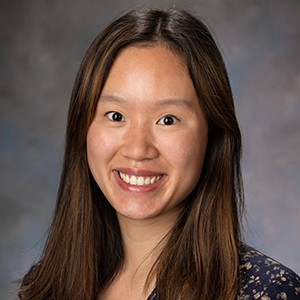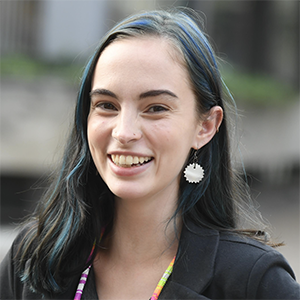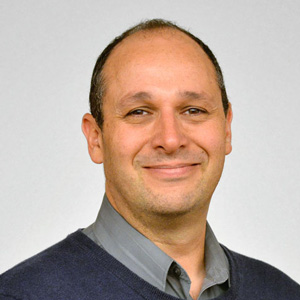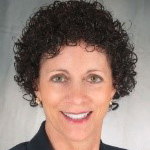People
Research Team & Collaborators
Principal Investigator

Cynthia Berg, PHD
As a life-span developmental health psychologist, I examine how adolescents and adults across the life span manage chronic illnesses (e.g., type 1 and type 2 diabetes, cancer) in the context of their family and friend relationships. In our recent developmental model of parent-child coordination (Berg et al., 2017), we explore how a foundation of high-quality parental involvement may facilitate young adults’ self-regulation and use of other relationships (romantic partners, friends, physicians) to facilitate chronic illness management. This model provides an important theoretical bridge between the adolescent and adult development research. My research examines how parents and spouses may facilitate or derail diabetes management during adolescence, emerging adulthood, and adults across the adult lifespan. The focus of much of my research has been on how individuals may benefit from working collaboratively with close relationships (most especially their parents, spouse, or romantic partner) to facilitate the completion of adherence tasks, especially individuals with lower cognitive and EF abilities. We have modeled these family self- and social-regulation processes utilizing dyadic and dynamical system models to capture family processes as they emerge across time (Butner, Berg et al., 2017).
Current Graduate Students

Eva Darrow
Eva is a clinical psychology graduate student in Dr. Berg’s lab. She is interested in the role of executive function and social regulation in condition self-management. In her free time, she enjoys cooking, baking and spending time with family and friends.

Anisha Marion
I am a proud member of the First Nation Ojibway and First Nation Abenaki Tribes. I graduated with a B.A. in Psychology from SUNY Plattsburgh. Broadly speaking, I am interested in understanding self and social regulation processes in the context of chronic health conditions. My research seeks to understand how emerging adults with type 1 diabetes engage EF skills to manage interference that arises from non-diabetes-related goals. Recently, I was awarded an NSF GRFP to extend my work on goal prioritization to AI/AN students in higher education. My project seeks to understand how communal aspects of goals affect academic and health outcomes, as well as understand how ambivalent social support from family may play a role in academic goal achievement. The framework developed through this project can also be extended to other domains like chronic health conditions.
Research Associate

Jessica Mansfield
I coordinate the various projects in the Lifespan-Development and Adaptation Lab. I earned my M.S. degree in experimental psychology from Western Washington University in Bellingham, WA where I studied how informal caregivers managed daily stress of caring for someone with dementia.
Current Collaborators

Deborah J. Wiebe, PHD, MPH
University of California – Merced
My research interests fall within the domains of health and pediatric psychology. Broadly speaking, I am interested in understanding how people cope adaptively with acute and chronic health threats. My research draws on Leventhal’s self regulatory framework, which posits that health threats activate a common-sense understanding of health problems, which then guides ongoing efforts to manage the threat. Within this framework, health threats are activated at both an abstract rational level (e.g., I have high cholesterol which may increase my risk of heart disease) and a concrete emotional level (e.g., feeling fear and distress upon remembering my father’s heart attack). A general goal of my research is to understand not only how people cope to manage the health threat per se (e.g., change diet and exercise habits to lower cholesterol), but also how negative emotions are generated by health threats, how emotions influence health threat representations and coping behaviors, and how emotions are regulated to promote illness management and well-being.

Vicki Helgeson, PHD
Carnegie Mellon University
My research interests focus on how people adjust to chronic illness, including heart disease, cancer, and currently type 1 and type 2 diabetes and the implications of gender-related traits (agency, communion, unmitigated agency, unmitigated communion) for relationships and health.

Jonathan Butner, PHD
University of Utah
My current focus has been on developing tools for studying dynamical systems theory. Systems theory originated in mathematics and physics where much of the methodology and statistics are built around being able to measure a widget thousands of times. This is just not true in psychology, thus the tools do not simply translate over. This is further complicated by my interest in Soft Assembly: the idea that we flexibly can build a functional mechanism to solve psychological problems.

Michelle L Litchman, PHD, FNP-BC, FAANP
University of Utah
My research examines the intersection of diabetes, peer health (online and offline), aging, and technology (including social media, mobile apps, continuous glucose monitoring, and medical hacking) as it relates to diabetes management and health outcomes

Nancy Allen, PHD, ANP-BC
University of Utah
I completed a post-doc at Yale to enable me to study self and family self-management of chronic diseases in vulnerable populations. My program of research is focused on diabetes as a chronic disease and interventions using technology and lifestyle changes. My research encompasses two vulnerable populations: Hispanic population with Type 2 diabetes and individuals with diabetes and dementia.

Lindsay Mayberry, MS, Ph.S.
Vanderbilt University
My research interests involve the development and evaluation of family- and community-engaged interventions to support and sustain health behavior change among adults. I have developed mobile phone technologies to deliver interventions to socioeconomically and racially diverse patients. My goal is to create and implement interventions to improve the quality of patient- and family-centered care for adults with chronic conditions such as type 2 and type 1 diabetes, with a focus on health behavior change and psychosocial well-being.
Former Graduate Students
- MaryJane Campbell, Postdoctoral Research Fellow, Nemours Children’s Health Florida
- Batya Elbaum, Ph.D., Professor and Acting Chair, Department of Teaching and Learning, Department of Psychology, University of Miami
- Tracy Masiello, Ph.D., Divorce and Superior Court Mediator, Parenting Coordinator, Charlott, North Carolina
- Sean Meegan, Ph.D., Director, Consumer Experience Measurement and Discovery, Intermountain Health
- Barbara Ross, Ph.D., Rehabilitation Psychologist/Neuropsychologist, Wausau Hospital, Wausau, WI
- JoNell Strough, Ph.D., Professor, Department of Psychology, West Virginia University
- Frances Deviney, Ph.D., Senior Research Associate, Kids Count Director Center for Public Policy Priorities, Austin TX
- Debra Palmer, Ph.D., Professor of Psychology, Georgia Southwestern State University
- Ryan Beveridge, Ph.D., Professor and Executive Director Institute of Community Mental Health, University of Delaware
- Kelly Ko, Ph.D.,Vice President, Innovation and Strategic Initiatives @ Sharp HealthCare
- Amy Hughes Lansing, Ph.D., Assistant Professor, Department of Psychology, University of Vermont
- Caitlin Kelly, Ph.D., Director of Outcomes Research, T1D Exchange
- Sara Turner, Ph.D., Postdoctoral fellow, Endocrinology, Primary Children’s Hospital
